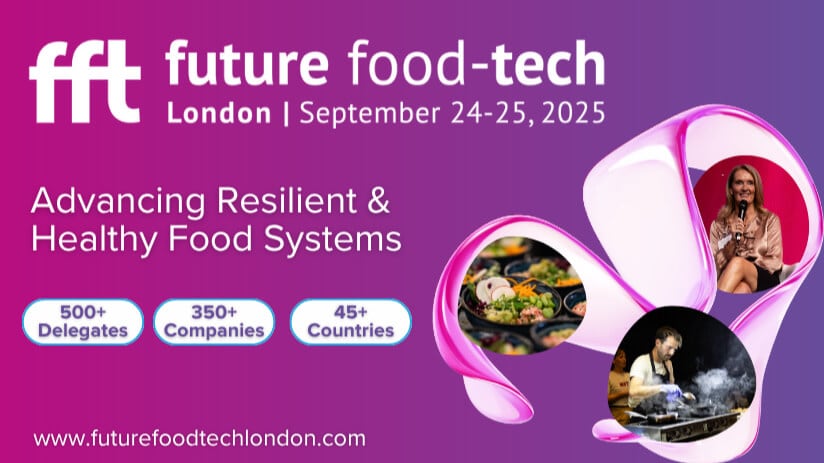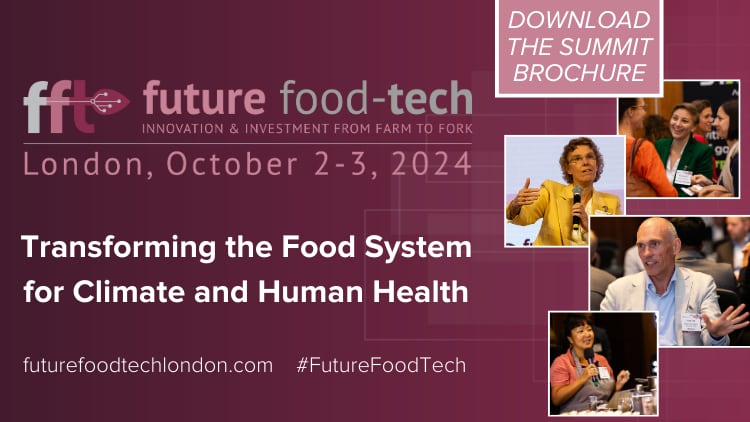From supply chain challenges and rising costs to regulatory changes and looming tariffs, the food industry is facing significant instability.
These challenges not only affect the resilience of producers, but also threaten the affordability of food for consumers globally. Understanding the root cause is essential for forging a path towards a more resilient food system.
Supply chain instability is a key challenge the food sector faces. In 2022, approximately 31% of UK F&B businesses reported global supply chain challenges.¹ In response, 55% were using more UK suppliers, 37% were increasing diversity in suppliers and 25% were expanding into different modes of freight.¹
Disruptions in the supply chain have ripple effects across the whole industry. From farm to fork, the systems that are responsible for producing, transporting and delivering food are strained by a variety of challenges.
Survey results from the second half of 2023 published in the ‘State of Food Security in the EU’ report found the main issues impacting supply were extreme weather events, input price volatility and logistical and transport bottlenecks, among others. Its results from the first half of 2024 showed these factors were ‘of the same relevance’ as before.
Rising costs are another factor which disrupt the food system. Labour shortages, increased energy and transportation costs and geopolitical uncertainty can all impact the cost of inputs, processing and distribution. Further adding to price volatility, the introduction of new tariffs, specifically those proposed by President Trump, will have far-reaching repercussions on financial markets.
Regulatory changes are also creating uncertainty. A variety of regulations coming into effect in Europe in 2025 include the Labelling and Requirements Under the Retail Scheme (July 2025), HFSS Advertisement Restrictions (October 2025) and EUDR (December 2025 to June 2026) – all of which may bump up costs and market disruptions.
Failure to comply with such regulations can result in fines, legal action and product recalls. Faced with this challenging regulatory landscape, European startups are reconsidering their go-to-market strategies as they navigate these increasingly complex changes.
Given the challenges, how can producers continue to be commercially viable without passing overheads on to the consumer?
Impact of climate volatility
Climate volatility has wide reaching effects across the food industry. In some regions, these changing climates are diversifying markets. For example, England’s warmer climates are now ideal for growing quality grapes for wine production, while soybean production is shifting beyond the US with Canada emerging as a new grower. These regional changes are reshaping trade and agricultural competitiveness at a global level.
However, for staple crops like cocoa and coffee, the impacts of climate change are more concerning. Despite the growing global demand for coffee, rising temperatures in Latin America are impacting coffee production, leading to reduced yields and pressure on producers and prices.
A study led by Oxford Environmental Change Institute in May 2025 showed the security of staple and high-value crops such as maize, wheat, and cocoa is far more fragile than previously understood.² Climate change is contributing to the spread and severity of both Cocoa Swollen Shoot Virus Disease (CSSVD) and black pod disease in cocoa production, affecting cocoa production in Ghana and the Ivory Coast.
Innovation for resilience
To tackle the shortages, the cocoa industry is innovating to adapt. Manufacturers are incorporating alternative ingredients to reduce cocoa content while maintaining its flavour.
By using upcycled products (like cacao fruit pulp and shells) and alternatives like fava beans, manufacturers can create products which mimic the traditional chocolate taste. For example, UK-based startup Nukoko is developing a ‘new wave’ of cocoa-free chocolate alternative from fava beans by employing the same fermentation process that changes cocoa beans into chocolate.³
Innovations like this have become a strategic tool to address broader industry challenges that are now essential for driving sustainable production, overcoming poor harvests and achieving the long-term resilience needed to feed the growing population.
But in order to achieve this on a global-scale, collaboration between players of all sizes is needed to ensure the benefits of innovation can be widely experienced. Countries across Europe, like Germany and the Netherlands, are leading innovation here in the sector. Berlin, for example, is now home to REWE voll pflanzlich, the retailer’s first vegan supermarket boasting over 2,700 plant-based foods.⁴ Other retailers like Jumbo are actively price-matching plant-based meat products to make them more accessible to consumers.⁵
Plant-based brands are continuing to establish and innovate in the Netherlands. The Vegetarian Butcher is already an established presence while Beyond Meat, despite reported decline in revenue, is expanding operations in the country to meet the growing demand for plant-based alternatives.⁶⁻⁸ California-based company, Impossible Foods Inc., is also looking to expand to European markets like the Netherlands as sales of plant-based meat substitutes decline in the US.⁹⁻¹⁰
Sustainable financial models
Innovation is often only accessible if backed by viable funding models. In recent years, as financing opportunities beyond VC become available, there has been a shift towards more realistic investment strategies for food innovation.
One emerging avenue is government-led investment. The European Innovation Council (EIC) Work Programme aims to allocate over €1.4 billion for 2025, calling for applications which target innovative researchers, startups and small and medium enterprises (SMEs), among others.¹¹ The programme offers broad support ranging from grants, investments through the EIC Fund and prizes to Business Acceleration Services.
In December 2024, the European Investment Bank (EIB) announced a €3 billion financing package for agriculture, forestry and fisheries across Europe along with moves to bolster farm insurance.¹² These loans will be matched by other participating financial institutions, unlocking €8.4 billion of long-term investments.¹²
Creative financing models, like non-dilutive financing and debt financing, are also becoming increasingly popular. These models are particularly attractive as they can allow companies to retain control with no obligation to involve the lender in day-to-day business operations.¹³
Highlighting the importance of investment in the industry, France is investing in food innovation as part of its national security strategy. The Common Agricultural Policy (CAP) Strategic Plan aims to ensure food security by improving the sustainable competitiveness of the agricultural sector, creating added value, increasing the farms’ resilience and limiting the use of inputs.¹⁴
As challenges in the food sector continue to evolve, investment is crucial for its competitiveness, growth and development.
Supporting a healthier, sustainable food system
To facilitate the conversation around the production of nutritious and tasty foods that support a healthier and more sustainable food system, Future Food-Tech’s European summit returns to London on September 24-25, to dig into the latest trends, innovations and obstacles shaping the future of food.
The summit will connect over 500 leaders from global brands, forward-thinking ingredient providers, pioneering startups and visionary investor funds, exploring how to create nutritious and tasty foods while supporting a healthier and sustainable food system.
The event will explore some of the industry’s pressing questions, such as:
- Which parts of the food value chain are most at risk from climate volatility, regulatory changes and supply chain disruptions and how can these risks be mitigated?
- In an era of redefined trade flows, how can food sector leaders reposition their strategy and partnerships to mitigate risk and capture emerging opportunities?
- From chocolate and coffee to algae oils, which innovations are enabling industry to bridge supply gaps and ensure resilient supply?
In addition to the main stage sessions, the summit also includes breakout sessions with more in-depth discussions, a dedicated 1-1 meeting room and the Live Demo Kitchen which gives delegates the opportunity to try ground-breaking products.
Register now for Future Food-Tech London for two days of discussions and networking opportunities. Early Bird pricing expires Aug 7.
References
- Office for National Statistics. Recent challenges faced by food and drink businesses and their impact on prices.
- Environmental Change Institute. Nature loss and climate change pose growing risk to EU food imports, ECI researcher finds.
- FoodNavigator. Chocolate made from faba beans? ‘We’ve developed a brand-new ingredient’.
- REWE Group. REWE opens its first exclusively plant-based supermarket.
- FoodNavigator. Plant-based now cheaper than meat in the Netherlands: ‘Vegan burgers are on average 78 cents cheaper per kg’.
- Vivera. The Vegetarian Butcher joins forces with Vivera.
- FoodNavigator. Beyond Meat ‘scaling down’ after revenue decline, but remains ‘bullish’ in Europe.
- Savills. How the Netherlands’ emerging food trends are shaping the future of real estate.
- Bloomberg UK. Impossible Foods Wants to Put Plant-Based Burgers on European Menus This Year.
- Good Food Institute. Analyzing plant-based meat & seafood sales.
- European Innovation Council. European Innovation Council (EIC) Work Programme 2025.
- European Investment Bank. €3 billion of EIB Group financing announced for farmers and bioeconomy.
- Growth Lending. The difference between debt financing and equity financing.
- European Commission. France – CAP Strategic Plan.





